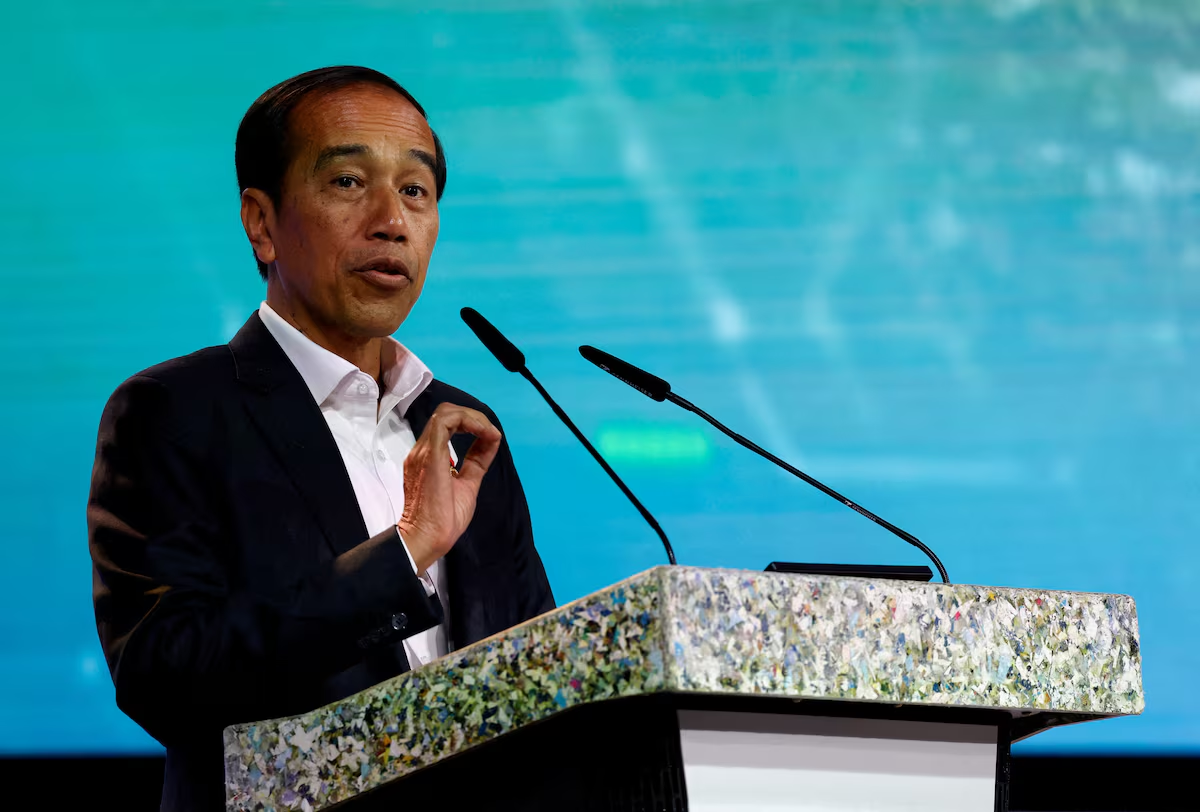JAKARTA, Sept 26 (Reuters) - Indonesian President Joko Widodo on Tuesday launched the country's first carbon emission credit trading, with the aim of creating a market to fund cuts in greenhouse gas emissions and become a major participant in the global carbon trade.
Indonesia, an archipelago home to the world's third-largest rainforest area, is also one of the world's top greenhouse gas emitters. The Southeast Asian country has set a target of reaching carbon neutrality by 2060.
The buyers were some of Indonesia's largest banks like Bank Central Asia (BBCA.JK), opens new tab and Bank Mandiri (BMRI.JK), opens new tab, other units of state energy firm Pertamina and companies in the mining sector, among others.
Transactions in the emission trading system are recorded using blockchain technology, Luhut said.
Thirteen carbon credits of nearly 460,000 metric tonnes of carbon dioxide equivalent (CO2e) from PT Pertamina Geothermal Energy's (PGEO.JK), opens new tab projects in North Sulawesi were traded at Tuesday's opening, priced at 69,600 rupiah ($4.51) per tonne, according to a trading board at the Indonesia Stock Exchange, which facilitates the trade.
The buyers were some of Indonesia's largest banks like Bank Central Asia (BBCA.JK), opens new tab and Bank Mandiri (BMRI.JK), opens new tab, other units of state energy firm Pertamina and companies in the mining sector, among others.
Jokowi, as the president is popularly known, said Indonesia has tremendous potential for carbon reduction efforts, particularly nature-based solutions, and its carbon market could grow to 3,000 trillion rupiah ($194.30 billion).
"I am very optimistic that Indonesia can become the world's carbon (market) axis as long as concrete steps are taken consistently and jointly by all stakeholders," Jokowi said during the launch.
In its initial stage, trading will be voluntary, but the government is working to put out a plan for further national regulations on pollution, which will include a carbon tax, Luhut Pandjaitan, a senior minister overseeing regulations for carbon pricing, said at the launch.
Some of Indonesia's biggest coal power plants have begun trading emission allowances since February.
An environment ministry official said the government would put a cap on emission levels for four other sectors: forestry, industrial processes and product use, agriculture and waste management.
Indonesia will also adopt international standards and accelerate work to get mutual recognition from markets abroad to be able to offer its carbon credits to foreign buyers, Luhut said, though he stressed cross-border carbon trade should not disrupt Jakarta's own target under the Paris Agreement.
Transactions in the emission trading system are recorded using blockchain technology, Luhut said.

